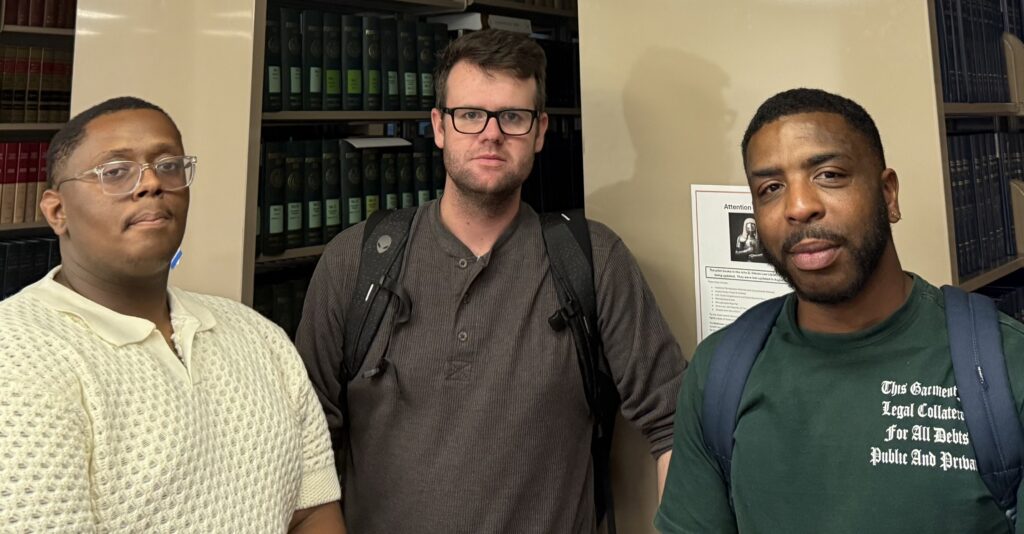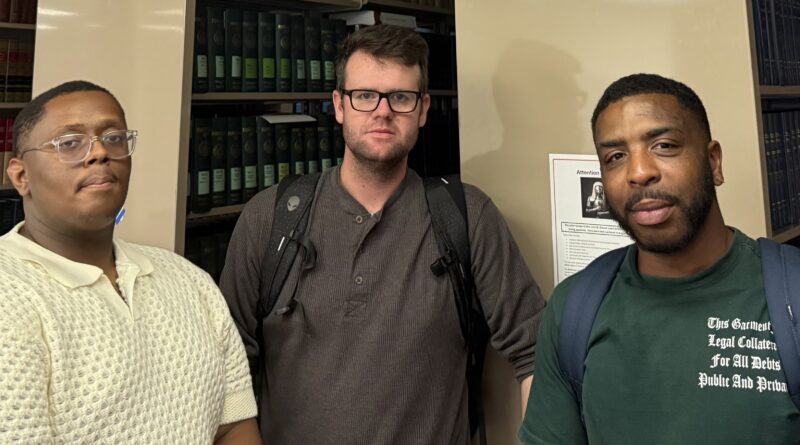Central Penn debate team makes more points
The wrangling rhetoricians outargued Bryan U.’s talkers

By Arsenio Humphrey
Knightly News Reporter
The Central Penn College Debate Team argued its way to a 284.5-to-277.5-point victory over Bryan University last month in a competition that challenged both teams to tackle one of the most complex constitutional questions of the year.
That question was President Donald Trump’s Executive Order 14160, also known as Protecting the Meaning and Value of American Citizenship, and its implications for the Fourteenth Amendment’s guarantee of birthright citizenship.

Not in photo: Ryder Hogan. Photo courtesy Central Penn debate team
The debate, conducted in the World Schools Forum style, required each team to analyze the topic: “Should the current proposed executive order on birthright citizenship be upheld?” The teams addressed the specific legal issue of whether Executive Order 14160 violates the Fourteenth Amendment of the U.S. Constitution’s guarantee of birthright citizenship.
A Department of Homeland Security document about the department’s preparations to implement enforcement of the order—which is under injunction from a federal court—notes the following changes the Trump administration hopes to enforce:
”The E.O. provides that the following categories of individuals will no longer be considered to be born “subject to the jurisdiction” of the United States and therefore will no longer be U.S. citizens at birth:
“1) children whose “mother was unlawfully present in the United States and the father was not a United States citizen or lawful permanent resident at the time of said person’s birth; and
“(2) children whose “mother’s presence in the United States at the time of said person’s birth was lawful but temporary (such as, but not limited to, visiting the United States under the auspices of the Visa Waiver Program or visiting on a student, work, or tourist visa) and the father was not a United States citizen or lawful permanent resident at the time of said person’s birth.”
The Fourteenth Amendment says, in part:
“All persons born or naturalized in the United States, and subject to the jurisdiction thereof, are citizens of the United States and of the State wherein they reside.”
The World Schools Forum debate format is one in which students on teams argue about a topic, pro or con. The team members prepare short speeches that outline the issue and their stance, responses to points the other team makes and collaborate to hone clear, persuasive, arguments in their cases for or against the debate topic.
The debate was held in Central Penn’s law library. Some students and faculty members attended.
The team was formed in the spring term.
“The debaters had to research the topic, prepare their arguments and develop strong defenses in a short time frame, as per the rules of the debate format,” club adviser Harry M. Baturin, director of Central Penn’s legal-studies program, said.
The Bryan team brought a powerful presence to the competition, exhibiting a relentless drive and well-researched positions.
After a tie at the midpoint, CPC surged ahead in the final two rounds. The competition concluded with Central Penn winning, 284.5 to 277.5.
The next debate is scheduled for Sept. 3, at Central Penn.
Comment or question? Wanna argue about it? (It’s a debate-team story; get it?) Contact [email protected].
Edited by media-club co-adviser and blog editor Professor Michael Lear-Olimpi, who contributed to this article.




